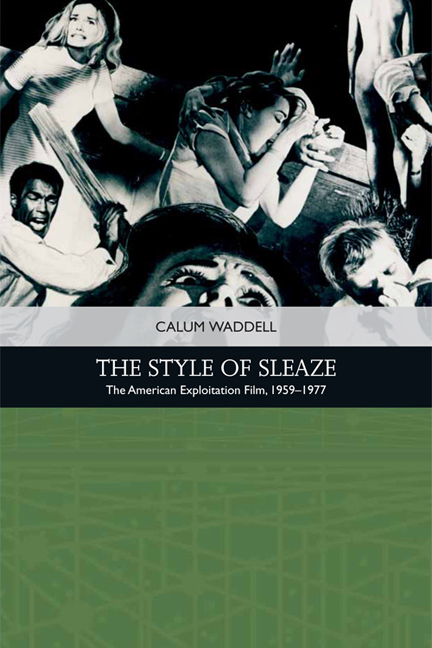Book contents
- Frontmatter
- Contents
- List of Figures
- Acknowledgements
- Introduction
- 1 Not Quite Hollywood
- 2 Emerging from Another Era – Narrative and Style in Modern Exploitation Cinema
- 3 Can We Call It Sexploitation?
- 4 Sex Morality Plays: Character in Adult Cinema
- 5 The Body is Everything: Sexploitation Spectacle
- 6 Exploitation-Horror Cinema
- 7 Cannibalising Tradition: Romero’s Zombies and a Blood Feast
- 8 Slash and Burn: The Exploitation-Horror Film in Transition
- 9 Blaxploitation Cinema: Race and Rebellion
- 10 Sex, Violence and Urban Escape: Blaxploitation Tropes and Tales
- 11 The Blaxploitation Female
- 12 Exploitation as a Movement
- Select Bibliography
- Index
10 - Sex, Violence and Urban Escape: Blaxploitation Tropes and Tales
Published online by Cambridge University Press: 11 November 2020
- Frontmatter
- Contents
- List of Figures
- Acknowledgements
- Introduction
- 1 Not Quite Hollywood
- 2 Emerging from Another Era – Narrative and Style in Modern Exploitation Cinema
- 3 Can We Call It Sexploitation?
- 4 Sex Morality Plays: Character in Adult Cinema
- 5 The Body is Everything: Sexploitation Spectacle
- 6 Exploitation-Horror Cinema
- 7 Cannibalising Tradition: Romero’s Zombies and a Blood Feast
- 8 Slash and Burn: The Exploitation-Horror Film in Transition
- 9 Blaxploitation Cinema: Race and Rebellion
- 10 Sex, Violence and Urban Escape: Blaxploitation Tropes and Tales
- 11 The Blaxploitation Female
- 12 Exploitation as a Movement
- Select Bibliography
- Index
Summary
The famous African-American theorist, Cornel West, mentions how ‘Americans are obsessed with sex and fearful of black sexuality. The obsession has to do with a search for stimulation and meaning in a fast-paced, market-driven culture; the fear is rotted in visceral feelings about black bodies and fuelled by sexual myths of black women and men.’ Even today when one travels across the Far East the influence of Western beautification is apparent – darker skinned models are almost entirely eliminated from advertising in favour of the American idealism of the pale-faced, pale-eyed clothes-horse. Black bodies are still so taboo in East Asia that in China a recent advertisement had a black man literally ‘washed clean’. In light of this modern conflict between black as somehow ‘inferior’ to both Asian and white beautification, it is worth drawing on blaxploitation as something that, for all of its exploitative motifs, at least drew audiences into a cinema to view the ‘myths’ of African-American sexuality in a forthright ‘How do you like that?’ manner. Blaxploitation was as much a force for not only affirming the worst of the non-black audience's fears but subverting such expectancies by showing the black man (or woman) in a recreated world in which their sexuality was more in demand than any other. In this regard, as exploitative as blaxploitation cinema undoubtedly is of African-American sexuality, it is difficult to accuse the form as being demeaning when so few films, even now, are willing to offer any kind of black sexuality to audiences.
With this said – West propositions a familiar Marxist argument: the limitation of leisure time, and the surplus of labour time, initiates a desire for ‘stimulation and meaning’. This search is temporarily satiated via the commodification of escapism and the saleability of images that stimulate some form of fantasy (and usually male fantasy). Media-entertainment industries manipulate sex into a product for capital gain: exploitation cinema as an obvious example – including that age-old taboo of interracial coupling. West's description of a ‘search for meaning and stimulation’ certainly found an outlet in the popularity of Sweet Sweetback: despite a slow start, playing in grindhouse theatres, it would become the number one film on American release less than two months after its premiere. This popularity indicates that African- American sexuality was proving curious to a wider audience than ‘just’ black cinemagoers.
- Type
- Chapter
- Information
- The Style of SleazeThe American Exploitation Film, 1959–</I>1977, pp. 157 - 173Publisher: Edinburgh University PressPrint publication year: 2018



